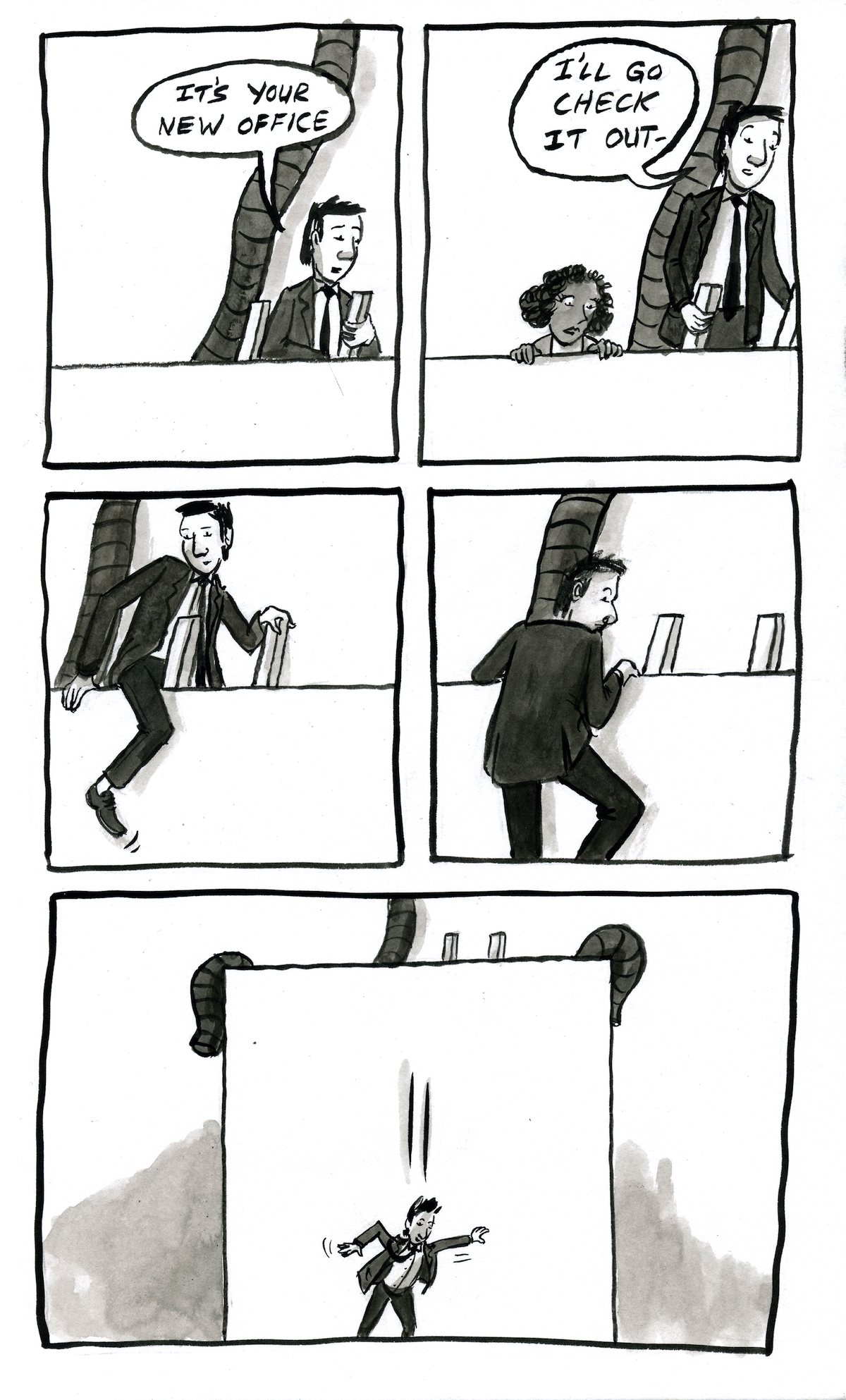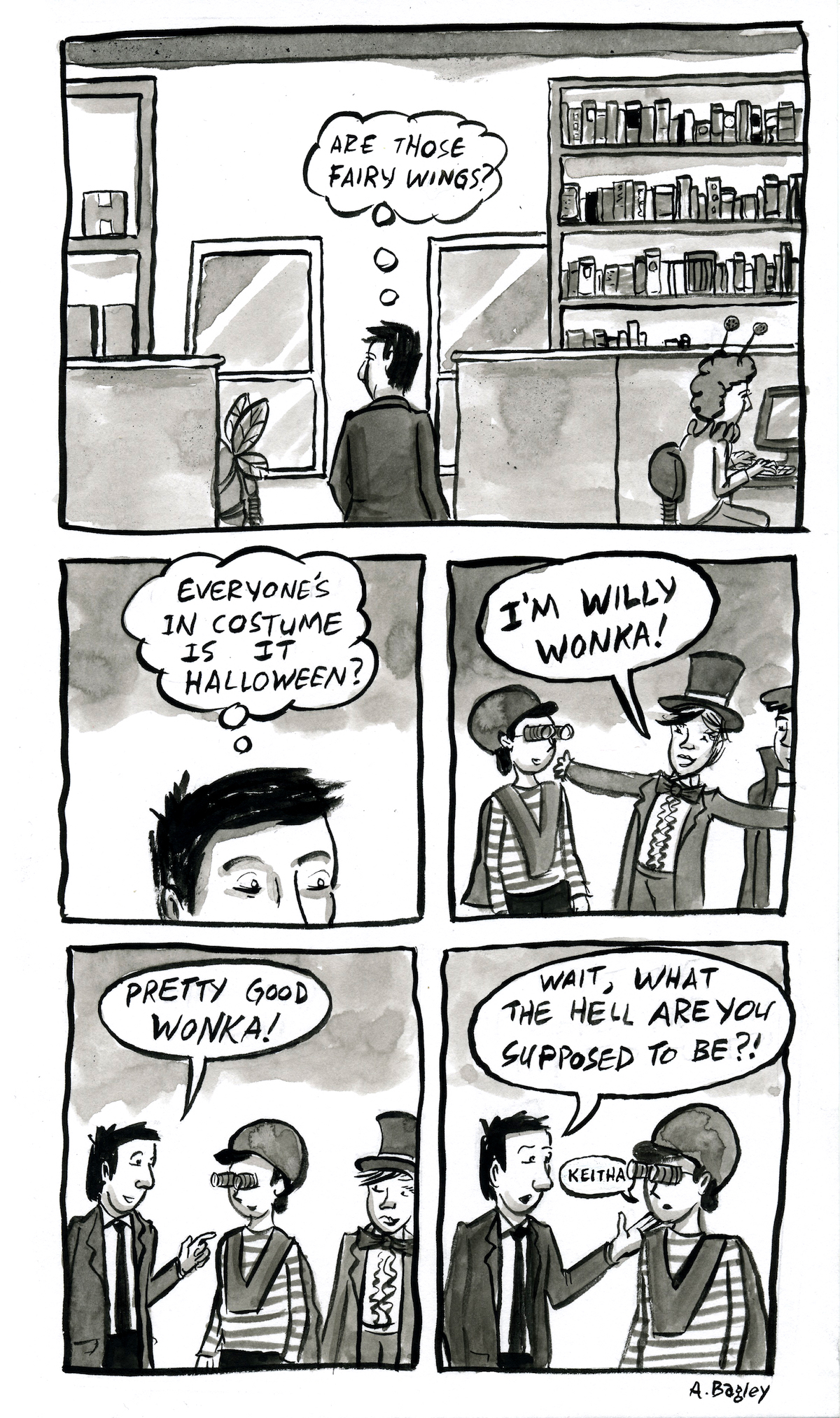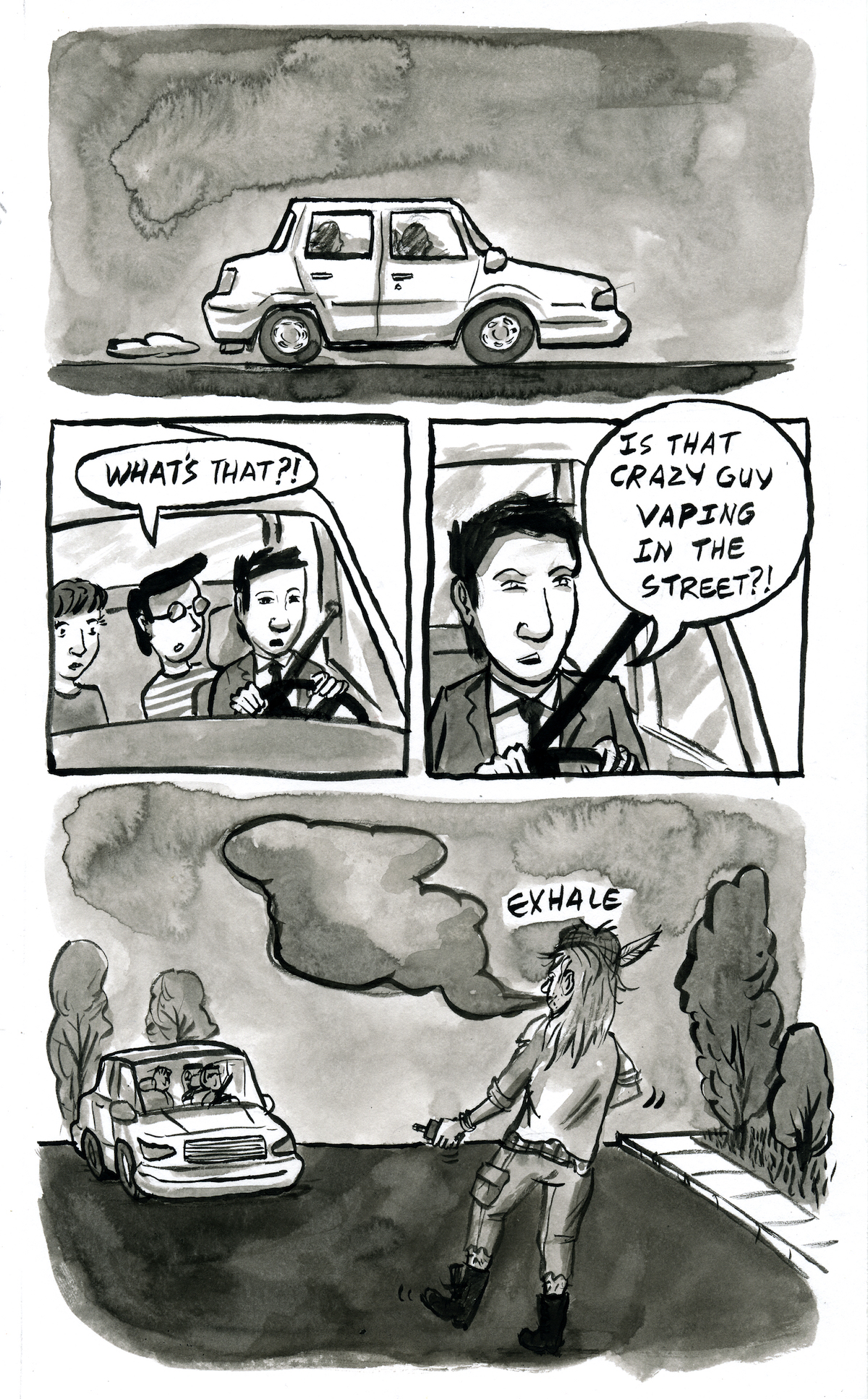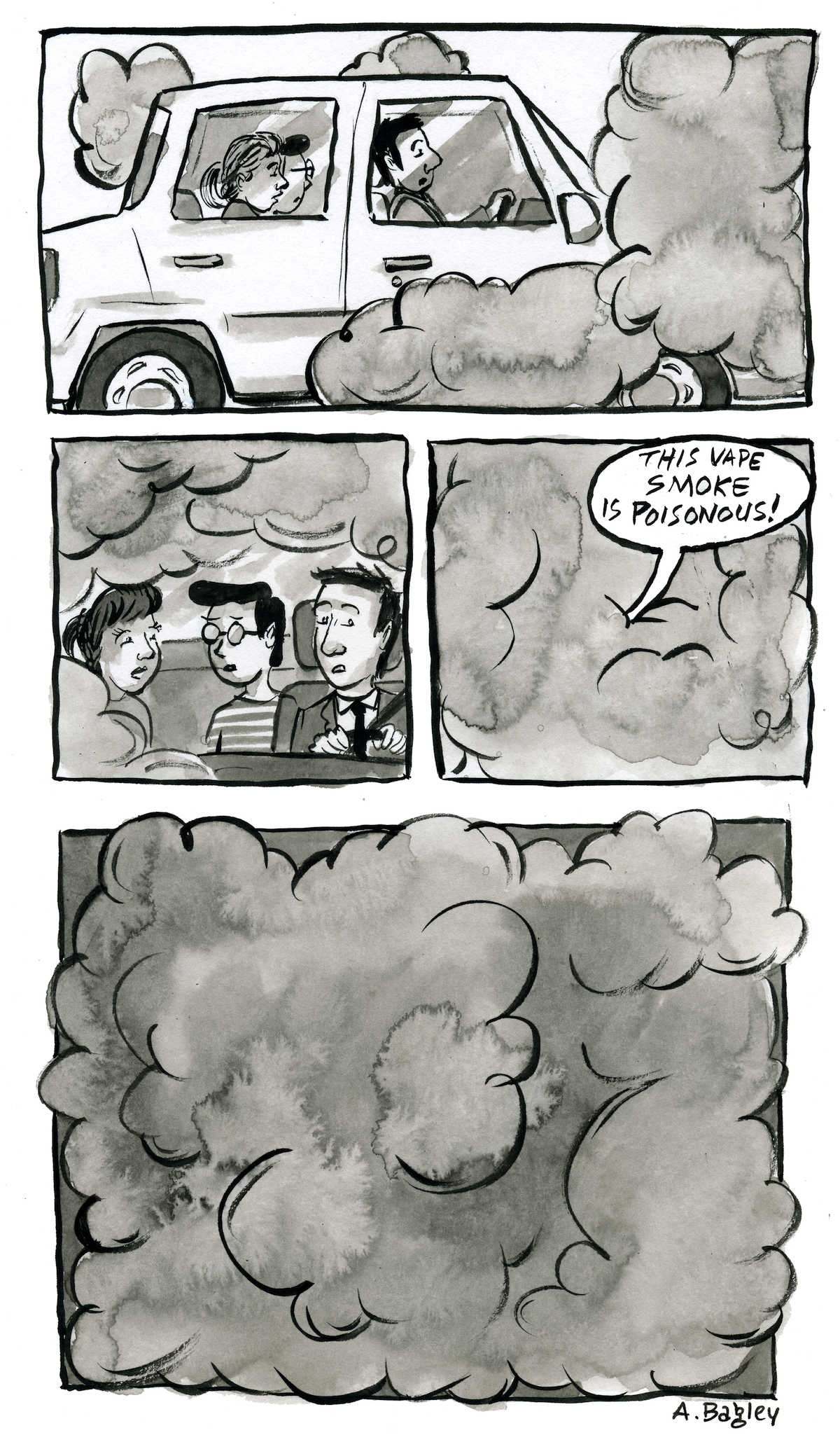One more reason to miss Seattle7Writers

Here’s just one example: in 2010, board member Kit Bakke was concerned about the growing numbers of homeless people in Seattle. After visiting shelters and housing facilities, she noticed something missing: books. A love of reading isn’t limited to those who have disposable income — but access to books often is.
“Since we Seattle7′ers knew exactly where to find people and organizations happy to donate books,” she says, “the plan was hatched.” For nearly a decade, Pocket Libraries has re-homed gently used books in shelters, food banks, and more. A lot of the books are advance reading copies donated by reviewers and bookstores. (As the recipients of an above-average number of ARCs, we can’t tell you how great we think that is.) This week, Seattle7Writers is back as a sponsor to thank the volunteers and donors who’ve made Pocket Libraries a success.
Want to help by donating books or time? Email info@pocketlibraries.org. And in the meantime, check out our sponsor feature page to learn more about the amazing folks who launched and ran this almost-decade-old program to bring great books to people who need ’em.
Sponsors like Seattle7Writers make the Seattle Review of Books possible. Did you know you can sponsor us, too? We're sold out through January 2019, and even though we haven't released the next block, there are just a few dates left in February and March. Want to reserve your favorite week before it's too late? Just send us a note at sponsor@seattlereviewofbooks.com.
Your Week in Readings: The best literary events from Nov 26th - Dec 2nd
Monday, November 26: Revolution in the Air Reading
Three authors join forces to discuss the legacy of 1960s protest culture, from modern activism to Donald Trump. The readers are Max Elbaum, author of Revolution in the Air: Sixties Radicals Turn to Lenin Mao and Che; Cindy Domingo, co-editor of A Time to Rise: Collective Memoirs of the Union of Democratic Filipinos; and Michael Withey, author of Summary Execution: The Seattle Assassinations of Silme Domingo and Gene Viernes. While my generation was practically crushed beneath the weight of 60s nostalgia, this evening sounds like a thoughtful and appropriate consideration of what was, what is, and what will be. Third Place Books Seward Park, 5041 Wilson Ave S, 474-2200, http://thirdplacebooks.com, 7 pm, free.
Tuesday, November 27: Made at Hugo House Fellows Showcase
Former members of the Hugo House's writing program for young local authors come together to read new work. Made at Hugo gives writers resources, space, and a peer group in the hopes that they'll make new and exciting work. Here's where we see if all that work pays off. Readers include Steven Barker, Bill Carty, Sierra Golden, and Shankar Narayan. Also reading tonight will be the great Laura Da’, who is this month's Seattle Review of Books poet in residence.
Hugo House, 1634 11th Avenue, 322-7030, http://hugohouse.org, 7 pm, free.
Wednesday, November 28: WordsWest
Three Bellingham writers head to West Seattle for the latest edition of WordsWest. The Bellinghamsters in question are poet Bruce Beasley, memoirist Suzanne Paola, and poet and fiction writer Carol Guess. Since we're now officially in the holidays and the holidays are for giving, this edition of WordsWest will also feature a bake sale to raise money for the West Seattle Food Bank. C&P Coffee Co., 5612 California Ave SW, http://wordswestliterary.weebly.com, 7 pm, free.
Thursday, November 29: The Feral Detective Reading
See our Event of the Week column for more details. Elliott Bay Book Company, 1521 10th Ave, 624-6600, http://elliottbaybook.com, 7 pm, free.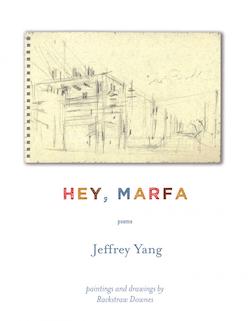
Friday, November 30: Hey Marfa Reading
The poet Jeffrey Yang appears in conversation with Seattle author Don Mee Choi to celebrate the release of Hey Marfa, a collection set in what the New York TImes has characterized as the "improbable art mecca in the Texas badlands." Hey Marfa's publisher, the great Greywolf Press, calls the book "a desert diary scaled to music that aspires to emit particles of light." Hugo House, 1634 11th Avenue, 322-7030, http://hugohouse.org, 7 pm, free.Saturday, December 1: Our Bruises Kept Singing Purple Launch Party
Malcolm Friend's debut poetry collection is a hip-hop inspired book with Latinx roots. Promotional materials describe Friend's voice as "a fearless weapon forged from South End Seattle, Puerto Rico, and Pittsburgh." He'll be joined by fellow poets Jasmine Schwartz, Luther Hughes, Lena Khalaf Tuffaha, and Quenton Baker to celebrate the book's birth. Rainier Arts Center, 3515 S. Alaska St, 652-4255. http://townhallseattle.org, 6:30 pm, $5.
Sunday, December 2: Writers in the Schools Celebration
Writers in the Schools is a program from Seattle Arts and Lectures that encourages Seattle schoolchildren to enjoy writing as an artform. This is party to celebrate this year's students, as well as the crowning of the city's brand-new Youth Poet Laureate. If you've been feeling cynical about the literary world lately, you'll want to come to this reading to charge up your batteries. Elliott Bay Book Company, 1521 10th Ave, 624-6600, http://elliottbaybook.com, 3 pm, free.
Literary Event of the Week: The Feral Detective reading at Elliott Bay Book Company
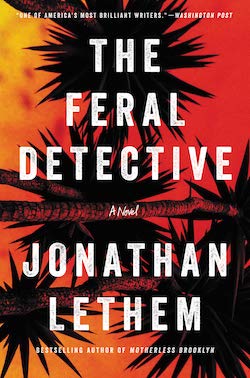
There's a moment fairly early in Jonathan Lethem's new novel The Feral Detective when our narrator, Phoebe Siegler, leans in for a passionate kiss. She rubs the man's hair and runs her hands across his "strong-cabled neck." Then she leans in and, surprising herself, whispers, "Who did you vote for?"
He responds, "Sorry?"
She realizes she blew the moment: "Don't answer, never mind, forget I asked." It's a jarring distraction from a sensual moment, the insertion of politics to a moment where politics doesn't belong.
That's kind of what reading The Feral Detective is like. It's a crime novel — the kind of detective tropes that Lethem has been playing with his whole career, from Gun, with Occasional Music to *Motherless Brooklyn — but it's one that is still reeling from the election of Donald Trump.
Siegler herself is still trying to understand what it means to live in a country with Trump as president. As soon as she starts to feel normal, reality rears its head and her narration gets scrambled again. Her story starts when she blows up her job: "I'd done everything right," she explains, "like a certain first female nominee we'd all relied upon, even my male friends who hated her, as a cap on the barking madness of the world."
Soon after the election, Siegler's friend's daughter goes missing. She sets out to find Arabella and she enlists the help of a detective with the brilliant name Charles Heist. The trail leads them to a cult and things go very wrong. Meanwhile, the world around Siegler and Heist falls apart after the election of Trump.
Feral Detective feels like a direct descendent of Pynchon's first detective novel, The Crying of Lot 49. But it also works as a metaphor for how impossible it is to fall prey to suspension of disbelief in the age of Donald Trump. No fictional situation is too ludicrous anymore, now that the real world has tipped over into a bad novel.
It's not really fair to accuse Feral Detective of lacking focus, as that's kind of the point of the book. But it's still not as fun as it could be, nor as compulsively readable as it should be. At certain points in the narrative when Siegler seems to give up hope, some readers might want to follow suit and set the book down.
Feral Detective ultimately reads like minor-key Lethem; unlike, say, the all-consuming sprawl of his underrated Chronic City, Feral Detective feels myopic and small. But even a lesser Lethem book is still worth your time and attention, and at certain points the book erupts into an orgasmic display of imagination and writing bravura. There are enough of those moments to make you almost forget what a shitshow the rest of the world is right now. Almost.
This Thursday, Lethem reads from The Feral Detective at Elliott Bay Book Company. He will undoubtedly have some things to say about the president and fiction and what purpose fiction serves in a time when Trump is president.
Elliott Bay Book Company, 1521 10th Ave, 624-6600, http://elliottbaybook.com, 7 pm, free.
The Sunday Post for November 25, 2018
Each week, the Sunday Post highlights a few articles we enjoyed this week, good for consumption over a cup of coffee (or tea, if that's your pleasure). Settle in for a while; we saved you a seat. You can also look through the archives.
Stop Dismissing Inclusive Children's Books as "Too Political"
Librarian Erinn Salge responds to Joe Pinsker’s Atlantic essay about diversity in children’s and young adult books thoughtfully and decisively. Pinsker conflates the introduction of missing narratives with political propagandizing; Salge expertly deflates him.
For decades, many of these stories have been relegated to the “special interest” shelf, signaling to children that these narratives only need to be read by certain people — that they are not required reading, not worthy of the canon, too narrow to be universal. But if scholars and booksellers yield to the idea that representing all people makes books more leftist, or inherently political, they close the doors on these narratives and their importance. Proclaiming them to be of little use to “plenty” of families tells the children who see themselves represented that they, too, are of little use to most people.
Tossing a Bird That Does Not Fly Out of a Plane
Annie Lowry with a Thanksgiving story about one town’s very unpleasant holiday tradition. Fair warning: this isn’t a puff piece about small town America; it’s a consideration of how and when humans offer empathy to animals, with direct though not lurid descriptions of animal suffering. Of several kinds.
That George had recovered from the turkey drop but not from the death of his friend. That he had physically recovered, but was emotionally devastated. That was the only thing I encountered while reporting this story that made me cry. I got in the car after meeting him and sobbed while cleaning muck off of my boots. Couldn’t that one bird just feel some peace?
Junot Díaz Is Back on the Pulitzer Board Because We Can’t Quit Powerful Men
I am all for due process in a legal setting, and I am all for the equivalent of due process in a civil setting. I can’t help but reflect, though, on how many spurious reasons there are for keeping women out of positions of power — too aggressive, too meek, wrong clothes, wrong age, has children, doesn’t have children, too ambitious, not ambitious enough, etc., etc., are you screaming yet? — and yet how very difficult it can be to unseat a man once he’s settled himself onto a professional throne. Carrie Mullins writes here on Junot Díaz’s return to the Pulitzer Board, what it signals for the post-#metoo moment, and what it means for the women whose work he’ll judge.
It comes down to a simple question that’s been hounding me ever since the news was announced: is it so much to ask that a public face and influential member of the Pulitzer Prize Board not be one who is unfriendly to women? American literature is exploding with great work; we’re not suffering from a lack of talent. Why not make the Chairman of the Board of one of our greatest literary honors a writer who hasn’t yelled “rape!” repeatedly in the face of their female dinner companion?
Whatcha Reading, Marilyn McClellan?
Every week we ask an interesting figure what they're digging into. Have ideas who we should reach out to? Let it fly: info@seattlereviewofbooks.com. Want to read more? Check out the archives.
Marilyn McClellan is a retired middle school counselor, writer, ex-library board member, mystery aficionado and collector, and, also, my mom. She's one of the most voracious readers I know, and taught me that a good reader reads broadly. What better way to end a week of thanks then asking someone I love what they've been enjoying lately? She tracks her reading on GoodReads, if you care to follow along.
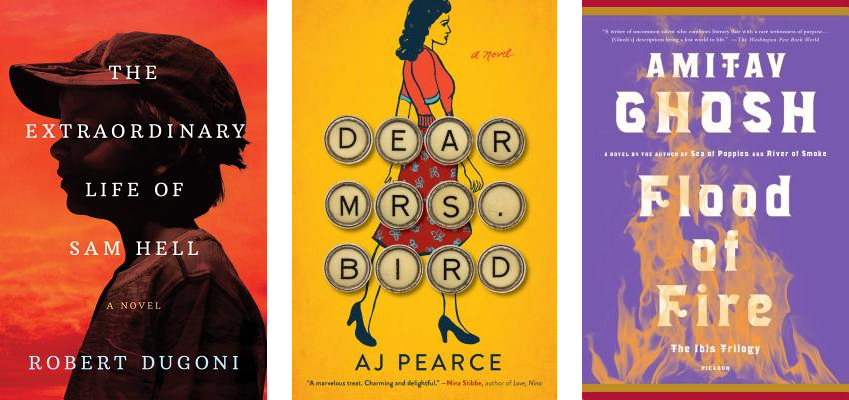
What are you reading now?
In June I went to hear a panel of writers speaking at the Bothell library. One of those writers was new to me, a Seattle writer named Robert Dugoni, and the librarian that presented him highly praised his new book, The Extraordinary Life of Sam Hell. It has taken a few months to get to it, but it is a most enjoyable read about an eye doctor who was born with red pupils and as a child was called “Devil Boy” by the other students. He muses on his life and choices and his relationship with two friends who were also outcasts.
What did you read last?
Dear Mrs. Bird, by AJ Pearce. It was a charming little novel about a young woman who has a menial job at a newspaper for a formidable boss. Placed in London during the blitz, I was a bit surprised by the scenes of people attempting to function normally in the nightly presence of bombs and those who valiantly worked among ruins to put out fires and locate survivors. The author’s wartime portrayal of London was fascinating, but I especially enjoyed the heroine’s going against her boss to secretly answer the letters to readers who ask for advice during those difficult times.
What are you reading next?
Another book in my “to read” pile is Flood of Fire by Amitav Ghosh. I long ago finished the first two books in his Ibis Trilogy, Sea of Poppies and River of Smoke. I read the second book while in Hong Kong visiting my daughter, which was particularly relevant because of the setting. The books deal with the trafficking of indentured servants and trade of opium in the 19th century and Ghosh has been short listed for several prizes for the trilogy.
The Help Desk: The reading cure
Every Friday, Cienna Madrid offers solutions to life’s most vexing literary problems. Do you need a book recommendation to send your worst cousin on her birthday? Is it okay to read erotica on public transit? Cienna can help. Send your questions to advice@seattlereviewofbooks.com. Cienna Madrid is spending Thanksgiving weekend with her spiders; this column originally ran in 2015.
Dear Cienna,
Have you ever tried to get somebody to change by offering a book that you think might affect them? I have a friend who is drinking himself to death. He listens to books, but not people. Books have changed me, maybe one would change him. Any ideas?
Seth in Georgetown
Dear Seth,
As a teenager I received at least seven copies of How to Make Friends and Influence People from a bouquet of well-intentioned dickheads. I read the damn thing at least twice. It did not make me better at making friends, or even better at making eye contact with strangers. It did nothing but make me resent the fact that I was too old to be cute and too young to drink.
That said, I’d caution you about gifting a book with the hope of changing someone. In my view, books are not topical salves prescribed to fix personal flaws, they are the simplest form of love letter – you give them to people you love because you believe their content will resonate with them on an emotional and intellectual level. Whatever personal change occurs because of that connection is secondary.
Fortunately for you, I have a ton of heavy drinkers in my life and I love at least half of them. Here are three books I’ve read about addiction: Drinking, A Love Story; The Night of the Gun; Dry. I gave the first two as gifts to friends (I didn’t love Dry, to be honest, but I know quite a few people who did). The books did not change my friends’ drinking habits at all. But it did create an avenue to talk about addiction and we’ve had a few good conversations about alcoholism since then. Usually while drinking.
So: I recommend you read those books and see if any of them remind you of your friend. If you have the time and interest, you should also read this fascinating article published in 2015 in The Atlantic that critically challenges the efficacy of AA.
More importantly, I’d like to point out that I have lots of friends now, even if most of them are only half sober.
Suck it, Dale Carnegie.
Kisses,
Cienna
Who I'm thankful for
Cooperation is what makes us human. We are defined by the groups that we belong to: families, nations, workplaces, hobbies.
But groups are hard to maintain. Entropy is always pushing at the edges of our relationships. People leave behind physical manifestations, but an organization can easily disappear without a trace. An immense structure like Safeco Field can seem like an eternal structure, a monument to Safeco that will last forever, but then with the exchange of some significant amount of money it becomes T-Mobile Field.
The WaMu Tower on Second Ave almost immediately lost its name when Washington Mutual disappeared in the Great Recession. Now it's the Russell Investment Center. Different groups rise and fall as people come and go. The will behind organizations fade and dissipate with time.
I've been thinking a lot about arts organizations, lately. It's amazing that they exist at all, that people join forces and dedicate huge portions of their days to supporting and fostering the arts. I know dozens of Seattleites who could be making more money working for tech companies or insurance firms or marketing agencies, but they decide instead to dedicate their lives to the arts. It's a sacrifice, but often a very happy one.
To dedicate yourself to an arts organization is to establish a very tenacious set of roadblocks in your own path. There's that organizational entropy I was discussing earlier: no organization wants to dissipate into nothingness more eagerly than an arts organization. And there's the lack of resources. And there's also the lack of local media willing or able to give the time and attention that the cause so desperately deserves. But still some of us — those sainted few! — decide to stay, and fight, and hold everything together though the whole universe at times is trying to pull them apart.
This Thanksgiving, I wanted to publicly express my gratitude for three local arts leaders who have done exceptional work on behalf of Seattle-area literary organizations. I'm grateful that we have them here in the city, and I hope they're around for many more.
First, I'm thankful for Tree Swenson, who guided the Hugo House through what could easily have been an organization-ending disaster. In the face of Capitol Hill's exponential economic growth, Swenson moved the Hugo House to a temporary location and then moved it back to a beautiful new home where it can exist for decades to come. The next few years are the fun part of the process: the organization is going to fill in the space and actually exist in it. Hopefully Swenson will stay at her post for years to come, to help the House become a home.
Second, I'm thankful for Ruth Dickey, the executive director of Seattle Arts and Lectures. It's hard to remember now, but just a few years ago, SAL was suffering from an existential distress. Attendance was way down at SAL events, and a kind of east-coast stuffiness had set into the programming. Every SAL season seemed like the same parade of New York publisher-approved grand lions of literature, and Seattle was in danger of losing interest. Dickey moved SAL's main-stage events to Town Hall for a few years, and then — with the help of curator Rebecca Hoogs — she oversaw the reading series's triumphant return to Benaroya Hall with a slate of readings as diverse and as fascinating as the world we all live in today. In addition to the high-profile readings slate, SAL does great work with its Writers in the Schools and Youth Poet Laureate program, lighting the way for a new generation of writers in Seattle.
And lastly, I'm thankful for Kelly Froh, who co-founded the Short Run Comix & Arts Festival and then shepherded it through its first great institutional crisis — the departure of founding member Eroyn Franklin. In my interviews with Short Run's board last month, everyone agreed that Froh has stepped up to the challenge and prepared Short Run for a smoother future — one that can survive the loss of any one figure. She's turned it from a happening into a real institution, and prepared it for a long life.
These three leaders have quantifiably made Seattle a better, more vibrant place. They've made their mark on the city by building communities for the rest of us to enjoy and rely on. And they've done it from behind the scenes, with no consideration for rewards or attention. On this, a day of gratitude, I wanted to wish them a Happy Thanksgiving, tell them that their work does not go unnoticed, and extend my sincerest thanks.
On Very Famous Literary Trolls
Last week, Twitter couldn't stop talking about a Literary Hub listicle written by a Very Famous Literary Troll. The Very Famous Literary Troll is famous for more than being a Literary Troll, of course — he's a bestseller who's been lauded in just about every bookish publication — but whenever the Very Famous Literary Troll has a new book out, he comes forth and issues a Very Serious Proclamation, usually having to do with writing and the internet. And people get very angry about the Very Serious Proclamation.
It's all a little exhausting.
I don't have time for the Very Famous Literary Troll's books anymore. I think he's proven himself to be an inelastic thinker — one whose time has come and gone. His books have already aged poorly, and based on his writing, he seems to be aging poorly as well. And I think most of the uproar caused by the Very Famous Literary Troll serves as nothing but free promotion for his bad books. I decided a while ago that I would try my best to ignore all of his Very Serious Proclamations, and that turned out to be surprisingly easy. The uproar begins, people rage against him, he ignores the response, and then everyone forgets about the uproar and moves on to the next thing.
I'm not saying that people are bad or wrong for responding to the Very Famous Literary Troll's Very Serious Proclamations. I'm a straight white male and so the Very Famous Literary Troll doesn't threaten me at all; there are lots of people who don't have that kind of luxury. And "don't feed the trolls" was one of the dumbest and wrongest truisms to be born in the early days of the internet. I've read and learned from a bunch of thoughtful essays about privilege, race, class, and literature that have been written in response to a Very Serious Proclamation or two.
But before you immediately respond to the Very Famous Literary Troll the next time he has a book to promote, I hope you'll stop and consider a few questions.
- Am I just tossing a disposable zinger into the social media void? Because if so, aren't I just willingly volunteering to join the PR campaign for his latest book?
- If I'm a white or otherwise privileged author, could I use my time more effectively than responding to this? Perhaps I could amplify the voices of writers who don't enjoy the Very Famous Literary Troll's massive platform instead?
- Shouldn't I be writing, I dunno, anything else right now?
If you consider those questions and you still feel like you have to say the thing you want to say, feel free. I hope you add to the discourse and feel good about your contribution. I can't wait to read it.
But if you opt out of responding, I hope you'll make a note to yourself to think about your decision in a week's time. Set a calendar reminder to reflect on your choice in exactly one week. Odds are good that you won't even remember what outrageous statement the Very Serious Literary Troll made.
And here's something personal I wanted to add as an aside: I've proudly contributed to Literary Hub in the past. I think they're a very fine publication that has ably filled a huge void in literary coverage on the internet. But I was embarrassed for Literary Hub last week. The day after they published that piece by the Very Serious Literary Troll, they posted another article composed entirely of angry tweets responding to their previous article.
"Yesterday, we published a lot of great pieces that probably not that many people read because they were too busy talking about this one on Twitter," the Literary Hub article began in an unfortunately self-congratulatory tone. This is one of my least favorite forms of journalism: a media outlet causes an uproar with a controversial piece and then fluffs itself up by promoting the uproar that they themselves caused.
Please note that I'm not calling for a media boycott or arguing that Literary Hub shouldn't have published the Very Famous Literary Troll in the first place. I'm not arguing against anyone's free speech. But I am saying that the literary internet should aspire to something better than this level of masturbatory clickbait.
I've read plenty of quality pieces on Literary Hub and I'm sure I'll read more pieces of that high quality again. But in that post — the one celebrating the controversy that they courted by monetizing critical tweets without compensating the writers they angered — they failed to meet the high standards that their organization promotes.
Let an expert bookseller help you give the gift of audiobooks
We are living in a golden age of audiobooks. Freeing audiobooks from physical media, it turns out, is the best thing that ever happened to the medium. Gone are the days with a phlegmatic old man droning through the text of a novel — audiobooks are now finely produced, expertly directed affairs that often add to the narrative in fascinating ways.
But audiobooks are an expensive hobby, and digital audiobooks have been impossible to buy through independent bookstores. Thankfully, the good folks at Seattle-based indie audiobook store Libro.fm teamed up with your favorite independent bookstores to sell audiobooks online and to provide a great subscription membership service.
And now, Libro.fm has made it easy to give audiobooks to your loved ones, with gift memberships and the option to give specific titles as a gift. Best of all, you can support your favorite local bookstore through your gifts. To help you consider your audiobook gift-giving, we talked with Elliott Bay Book Company bookseller and Drunk Booksellers co-host Emma Nichols about good audiobooks to give as gifts.
What's your favorite audiobook of the year?
Circe by Madeline Miller, hands down. It's about the goddess-witch from The Odyssey who turns men into pigs, but Circe is worth listening to whether or not you're interested in mythology or the classics. Miller's novel manages to be both musing and action-packed, and the narrator has the most incredible voice of any audiobook I've listened to — a voice like smoke and cream.
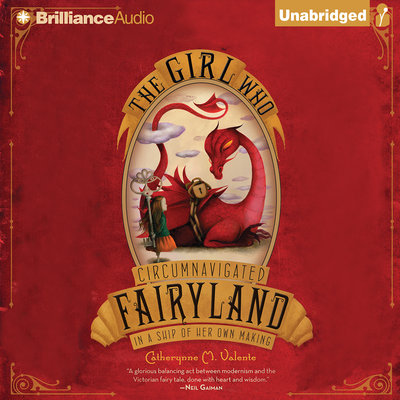
What audio book would you recommend to a teen who doesn't read very much?
Can I say Harry Potter, or is that too obvious? The Jim Dale narration, not the Stephen Fry (not that there's anything wrong with Fry, but I feel like you're either a Fry or a Dale and I'm a Dale.) Second answer: The Girl Who Circumnavigated Fairyland in a Ship of Her Own Making by Cat Valente. It's the story of a young girl who gets spirited off to a place called Fairyland where she has to overthrow a vicious dictator. It has action, humor, and a lot of playful language, which I think is perfect for audio listeners. But what I would tell the teen is that it's about a badass kid who has to make her own way in a magical world.
What non-fiction would you recommend to someone who's looking for escapism?
Shirley Jackson's memoirs Life Among the Savages and Raising Demons. Everything coming out right now seems to be about how the world is on fire (figuratively and literally). If you want to get away from politics, climate change, and oppression; if you want to laugh; if you want to be reminded that the image of the chirpy, put-together 50s housewife is total bullshit, read about Jackson's life as a woman, wife, and mother raising four kids in the mid-20th century. It is full of her signature mordant humor. These are the two audiobooks I turn to when I just need a break.
If they keep it up, Instagram seems like a good way to folllow the everyday happenings of Seattle City of Literature, the organization that's overseeing Seattle's status as a UNESCO-approved International City of Literature. The organization is still feeling out how to grow into the designation (every Creative City approaches its designation differently, and you need money to run those wonderful international creative exchange programs) and the Instagram account is a pleasant, informative way to keep tabs on those changes and respond to calls to action. If you're on Instagram, be sure to, uh, smash that follow button (and you're following the Seattle Review of Books on IG already, right?)
We don't need another Hunter S. Thompson
I loathe football and I loved Ben Fountain's Super Bowl-set novel Billy Lynn's Long Halftime Walk. It was the rare debut novel that established novelists were excitedly emailing each other about: "have you read this yet? You have to read this!"
And I love reading about politics. In fact, I unfortunately devote way too much time these days to reading political takes from anyone: novices, conservatives, liberals, socialists, pundits.
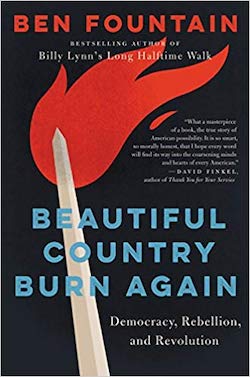
Unfortunately, I tried to read it.
What Fountain seems to be trying to do here is to produce a beautifully written and powerfully emotional narrative book about politics, something like what Hunter S. Thompson used to do in the late 60s and early 70s. I couldn't make it more than a few pages in.
Here, after an introduction or two, is the first paragraph of the first section of the book:
Is Hillary freaking? Has to be with all those '08 flashbacks frying the brainpan, that previous coronation spoiled by a grandiloquent rookie who nobody gave a chance, then he rolled her up like a Mafia hit in a cheap rug. Now it's a hectoring old geezer with scribby gray hair and suspiciously perfect teeth, the kind you slide in every morning and snap at the mirror, clack clack. Put a tan vest and a "Bernie" name tag on him and he could be one of those grizzled old guys down at the Home Depot, you ask him a perfectly reasonable question about sweat soldering, say, or flush valves, he just snorts and walks off. A career socialist no less. And Hillary wailed unto the Lord: Why me? Down fifty point in the polls a year ago, Sanders has clawed almost even just as the thing gets real.
What an exhausting, irresponsible piece of writing this is.
Look, I covered a presidential election in 2012 — sometimes very badly. I understand the desire to write beautiful prose and to add so much color commentary that it feels like politics is something else again — a fancy novel, say, with big heaving sentences and all sorts of emotional intrigue.
But the most important thing about political writing is that it's journalism. And the most important thing about journalism is that it should be truthful.
Look at Fountain's one-sentence recap of the 2008 Democratic primary, in which Obama "rolled [Clinton] up like a Mafia hit in a cheap rug." Uh, what? That's not how I remember the long, dragging winter and spring of 2008, when Clinton and Obama battled by inches across the country. A mafia hit as Fountain describes it is clinical and clean and efficient and you roll a body up in a rug so that nobody sees what you've done; 2008 was nothing of the kind.
You might think I'm splitting hairs here. "Give Fountain his artistic license," you might insist. I'm sorry, but not here. What he's describing is not true. It doesn't even come close to an honest account of the 2008 primary season. And landing as it does at the beginning of an account of another presidential primary, it immediately casts Fountain's credibility in doubt.
Additionally, there's the lazy sexism of Fountain repeatedly referring to Clinton casually as "Hillary," while he proffers Sanders the dignity of his last name in the final sentence. Fountain veers back and forth in the early part of Beautiful Country by referring to Sanders alternately as "Bernie" and "Sanders." But Clinton is almost always "Hillary."
Defenders would undoubtedly argue that Fountain also refers to Bill Clinton as "Bill" in the book, and that having two main characters named Clinton can cause confusion in readers. Okay, but hundreds of reporters dealt with this same problem in 2008 and 2016, and many of them handled the problem of clarity without diminishing the stature of the presidential candidate.
And that characterization of Clinton [wail[ing] unto the Lord" that Sanders would dare run against her isn't interesting or based on any evidence. In debates, Clinton was generous and respectful to Sanders, just as he was to her. Where is Fountain getting this wailing and gnashing of teeth? It reads, to me, like he's slapping his own preconceived notions on top of actual events. This is an understandable thing to do in a Facebook post, I suppose, but not in a book that the publisher bills in promotional copy as "a sweeping work of reportage."
This isn't a review. A reviewer should read all of a book. Ultimately, I couldn't get very far into Beautiful Country Burn Again. I rolled my eyes again and again at Fountain's pretentiousness, his mischaracterization, and his conjecture. I finally abandoned the book when I realized the whole thing was going to be a bad Hunter Thompson impression.
Thompson was a necessary writer for his time — he brought color and life to a political world that was addressing an insane situation with sober politeness. We do not need a Hunter S. Thompson for our times. Our times are already too colorful, too eventful, too unbelievable. What we need now are serious and dedicated reporters to tell us what's true and what's not. Ben Fountain is not that kind of reporter. He's just another man with an opinion.
Metes and Bounds
Chilled thigh under homespun,
the weaver’s aching backand yellowed finger pads,
quotidian aches bow to the sovereigntyof metes and bounds.
The length of cottonstretched between brass tacks
weaves its ownledger-worthy autonomy.
Proceed from the blazed linetwenty chains to the southwest.
Dull needle through burlap.Chilled holler of the axe’s
subtle swipethrough a scrimshaw of frost.
Under moss, an oak trunk is blazedbreast high and skin smooth
to mark the end place.
This year's Bullitt Lecture is a must-attend

If there's ever been a time when we needed the perspective of history — to understand what the heck is happening on the political stage, and to understand how to dig ourselves out of it — it's now. And this year's lecture is dead on target. The speaker is Erika Lee, one of the nation's leader experts on the history of immigration. Her theme is xenophobia, from the Japanese Amerian incarceration to the "Muslim Ban."
Tom Ikeda, co-founder and executive director of Densho.org, will join Lee in conversation after her lecture. Densho looks at the same history through testimonials and digital storytelling. It's an incredible site, and he's the perfect local complement to Lee. The free event is at 7 p.m. on December 1. Read more about the speaker on our sponsorship feature and put it on your calendar today.
Sponsors like the Seattle Public Library make the Seattle Review of Books possible. Did you know you can sponsor us, too? We're sold out through January 2019. And even though we haven't released the next block, there are just a few dates left in February. Want to reserve your dates before they go public? Just send us a note at sponsor@seattlereviewofbooks.com.
Your Week in Readings: The best literary events from November 19th - November 25th
Monday, November 19: Woman at 1,000 Degrees Reading
The Icelandic novelist Hallgrimur Helgason visits Seattle — like Iceland's capitol Reykjavik, an International City of Literature — to read from his new novel Woman at 1,000 Degrees, which was translated by Brian FitzGibbon. Seattle literature and Icelandic literature have more in common than you think. Come find out why!
Elliott Bay Book Company, 1521 10th Ave, 624-6600, http://elliottbaybook.com, 7 pm, free.
Tuesday, November 20: Chain Letter
The final Chain Letter reading of the year features authors including Matt Muth, Laura Wachs, and Mallory Mosner. This is a mainstay reading series on Capitol Hill, which combines practiced readers with new readers given a spotlight thanks to a burgeoning open mic. Vermillion Art Gallery and Bar, 1508 11th Ave., 709-9797, http://vermillionseattle.com,7 pm, free.Thursday, November 22: Thanksgiving!
Gobble, gobble.Friday, November 23 and Saturday, November 24: Go shopping
See our Event of the Week column for more details.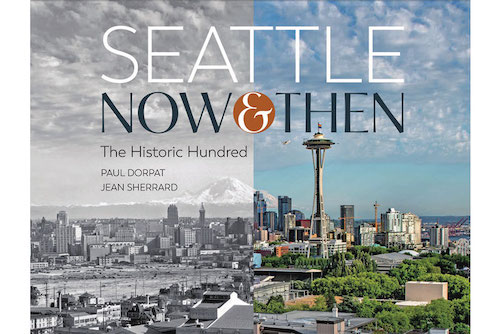
Sunday, November 25: Seattle Now and Then Reading
Here is a reading from a coffee-table book compiling the best photos from the “Seattle Now & Then” columns that have been in the Seattle Times for nearly four decades. The book also features "a special, four-foot-wide gatefold" showing off the city's growth from a unique perspective. Seattle Public Library, Fremont Branch, 731 N 35th St, 684-4084, http://spl.org, 2 pm, free.
Literary Event of the Week: Do your holiday shopping at an independent bookstore
I know I'm biased, because I come from a bookselling background, but I think a good independent bookstore is one of the most compelling reasons to live in a city. You can tell the quality of a city by its independent bookstore scene.
I don't need to tell you, a reader of the Seattle Review of Books, all this. But you might need a reminder that if you love a bookstore, the best way to demonstrate your love is by buying stuff there — especially during the holidays.
You could do worse in life than to be known as the person who always gives books for gifts. In fact, I'd argue that books are the perfect gift: they're personal and the receiver thinks of the giver the whole time they're reading the book.
Even better, bookstores have these humans called booksellers who work in them. These booksellers are happy to recommend books for you to give to friends and family. These are the kinds of people who love talking about books with people. They love it so much that they choose to do it for a living.
And you can feel free to ask your bookseller anything. There is — trust me — no question too dumb for a bookseller to handle thoughtfully. The dumbest question you can muster is not even likely to be in the bottom three hundred dumbest questions a bookseller of five years has heard.
When you give the gift of books you bought at an independent bookstore, you're really giving two gifts at once. You're giving the book, of course, but you're also investing in a local institution and improving the quality of life in the city you love. I don't know about you, but that's all I want for Christmas.
For more information about the bookstore nearest you: https://www.seattlebookstoreday.com/
The Sunday Post for November 18, 2018
Each week, the Sunday Post highlights a few articles we enjoyed this week, good for consumption over a cup of coffee (or tea, if that's your pleasure). Settle in for a while; we saved you a seat. You can also look through the archives.
The Watcher
Fascinating and creepy reporting by Reeves Wiedeman about the Broaddus family, who bought the home of their dreams — 657 Boulevard, in Westfield, New Jersey — only to be ruthlessly terrorized by scare notes from someone calling themselves “The Watcher.” The family struggles to identify the stalker, their investment drains away, and eventually their neighbors turn on them, which is the most normal and believable thing that happens in this crazy story.
657 Boulevard is anxious for you to move in. It has been years and years since the young blood ruled the hallways of the house. Have you found all of the secrets it holds yet? Will the young blood play in the basement? Or are they too afraid to go down there alone. I would [be] very afraid if I were them. It is far away from the rest of the house. If you were upstairs you would never hear them scream.
No Nut November
Well, here’s a head-scratcher. While some dedicate November to drafting a novel, epigraph to epilogue, and others grow mustaches to promote better health (odd, but well-intentioned), the isolated young men of the internet are … giving up masturbation? To punish women? Oh, for a world where this would be simply ridiculous, instead of the tip of an iceberg of misogyny and viciousness.
The NoFap sub-Reddit began in 2011, when one Redditor discovered a study that argued men who abstained from masturbating saw huge spikes in their testosterone levels after a week. While initially built merely on this foundation, the NoFap community has become linked to wider sexism and misogyny, reducing women to sexual objects to be attained or abstained from and shaming sexually active women. And this is no niche philosophy. The NoFap sub-Reddit, at the time of writing, has 377,000 subscribers.
I Found the Best Burger Place in America. And Then I Killed It.
Kevin Alexander visited more than 30 cities to find the best burger in America. At the top of the list: Stanich’s, in Portland, Oregon. It looked like a huge win for the family-owned business, until a flood of food tourists crashed against the doors, overwhelming the staff and driving out regulars. Today, Stanich’s is closed, its future uncertain.
This isn’t the first time a small business has been overwhelmed by internet fame. Who’s the villain here? Stanich’s owner made good decisions about his business as he knew it; Alexander had the best intentions about drawing attention to an awesome little restaurant. Even the foodies who mobbed the place were just hoping to discover something great. Still, these feel like cautionary tales, not just bad luck. Don’t they?
If there was one main negative takeaway from the raging fires of food tourist culture and the lists fanning the flames, it was that the people crowding the restaurant were one time customers. They were there to check off a thing on a list, and put it on Instagram. They weren’t invested in the restaurant’s success, but instead in having a public facing opinion of a well known place. In other words, they had nothing to lose except money and the restaurant had nothing to gain except money, and that made the entire situation feel both precarious and a little gross.
I’m From Seattle. Here’s What Amazon Will Do To New York City.
Speaking of cautionary tales— I don’t usually promote internally, but I loved this essay by co-founder Paul Constant. There’s something Trumpian about how quickly we seem to forget the bad deeds of Seattle’s favorite big employer, distracted by the next shiny object Jeff Bezos puts in front of us. Paul has a long memory, though, and, of course, a sharp, sharp wit.
The truth is, Amazon has always been a bad neighbor. The Seattle Times in 2012 called Amazon “a virtual no-show in the civic life of Seattle,” and that still sounds about right today. Unless it’s looking for publicity for a new Echo gadget, the self-described “bashful company” is notoriously silent. In my 10 years of reporting on Amazon in Seattle, its PR department has never once returned one of my dozens of requests for comment on its business practices. It’s not just the media that’s being stonewalled — Amazon’s management also failed to establish any meaningful relationship with local elected officials. As New York saw with the HQ2 beauty pageant, Amazon prefers to keep everyone guessing what its next move will be.
The Annual Book Sorting Competition Is New York’s Nerdiest Sporting Event
You guys. Spoiler. We lost.
On November 9th, at the 6th Annual Book Sorting Contest against Seattle, New York City’s book sorting team gathered together to take back the title of champion sorters in the United States. The race took place on both coasts, beginning with New York’s course at the Library Service Center in Long Island City and then the King County Library System’s course, several hours later, outside Seattle. Each machine would run for exactly one hour, zealously sorting books, getting them out to the numerous libraries in the area and ultimately into the hands of the patrons.
Whatcha Reading, Laura Da'?
Every week we ask an interesting figure what they're digging into. Have ideas who we should reach out to? Let it fly: info@seattlereviewofbooks.com. Want to read more? Check out the archives.
Laura Da' is a Seattle-based poet and teacher. She is Eastern Shawnee. Da' has been both a Hugo House Fellow, and a Jack Straw Fellow, and is our Poet in Residence for November — you can find her poems linked from her bio page. The University of Arizona just released her second book of poems, Instruments of the True Measure.
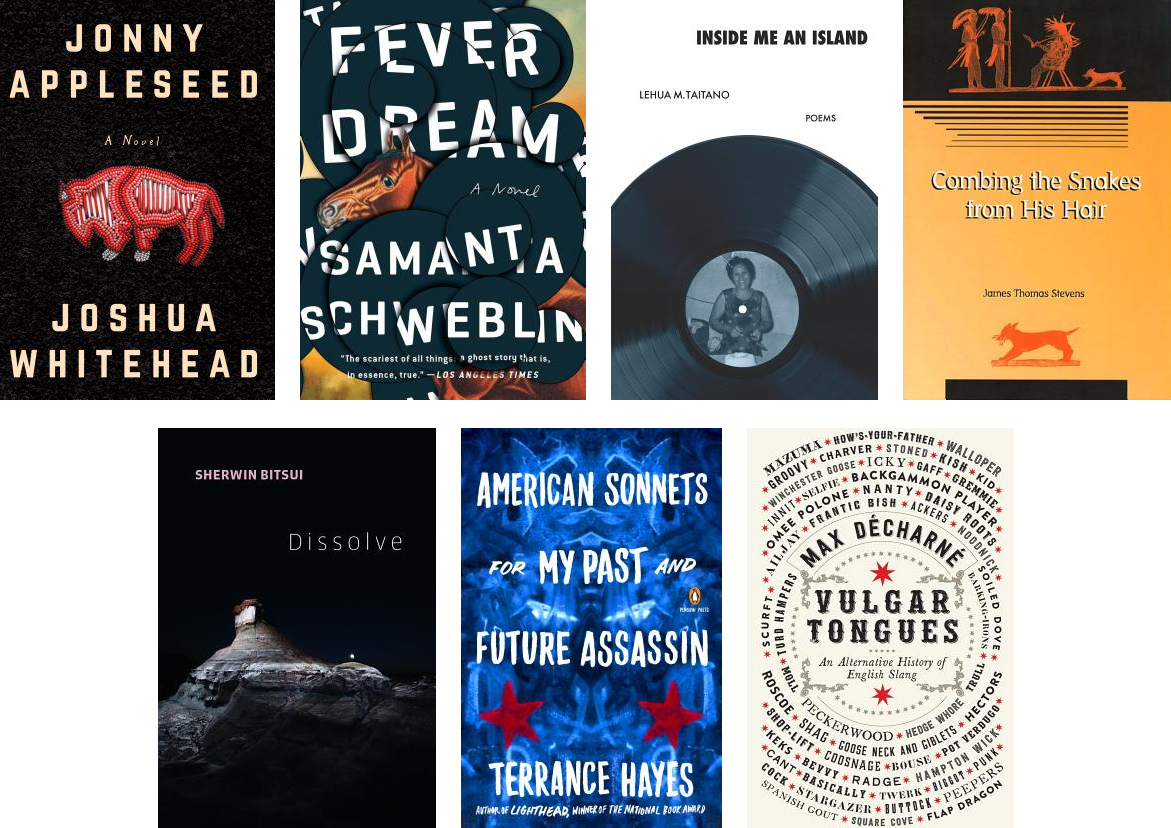
What are you reading now?
Right now I am reading Jonny Appleseed by Joshua Whitehead and Fever Dream by Samantha Schweblin. My best friend is a librarian who works the international circuit. She sends me books in translation from whatever country she is in and she just left Argentina last year and sent me Fever Dream. This book is tight, visceral, terrifyingly good, and also bluntly terrifying in its examination of environmental poison and alienation. I started Jonny Appleseed last night and it is so good I’m struggling to put it down. Whitehead is Peguis First Nation and Two-Spirit and from the first page, Jonny Appleseed is vibrant and pulsing with indigenous excellence.
What did you read last?
I just finished reading Inside Me an Island by Lehua Taitano. Taitano is a poet and interdisciplinary artist and that background informs their poetry with a ranging sense of the page’s whitespace and text movement; they are native Chamoru from Yigo, Guam, and this book examines diaspora with such skill and empathy. I was particularly moved by Taitano’s delicate use of correspondence in this collection. I’ve been re-reading Combing Snakes from His Hair by James Thomas Stevens. Stevens is one of my favorite poets and his long poem, Tokinish was one of the first things I read as a student at the Institute of American Indian Arts that made me want to write.
What are you reading next?
I’m about to read Dissolve by Sherwin Bitsui, American Sonnets for My Past and Future Assassin by Terrance Hayes, and Vulgar Tongues: An Alternative History of English Slang by Max Decharne. I’m a fool for any kind of popular non-fiction that breaks down language. I can’t wait to read Dissolve which is Bitsui’s third book and I expect that, like all of his work, it will be a new, unclassifiable, thrilling movement in poetry.
The Help Desk: Good dog, bad book
Every Friday, Cienna Madrid offers solutions to life’s most vexing literary problems. Do you need a book recommendation to send your worst cousin on her birthday? Is it okay to read erotica on public transit? Cienna can help. Send your questions to advice@seattlereviewofbooks.com.
Dear Cienna,
As you know, I got a dog last year. He's wonderful.
Naturally, I wanted to read some good non-fiction books about living with dogs, in order to better understand the new member of my household. But the problem is that I've started to read four dog training books and they're awful. They're not about the dog at all — they're just self-help books in doggy drag. One of them (the Dog Whisperer one) was all about how to raise a good dog, you need to be a better person. Another one I tried to read turned out to be a Christian recruitment pamphlet disguised as a dog training manual. Baaaaaarf. I'm not averse to changing my behavior to be a better dog owner, but I am averse to taking cloying life advice from cable TV show stars.
The only good dog book I've read so far is John Homans's What's a Dog For?, which looks into the history of human-dog relations. It was great because it focused directly on the behavior of dogs and the reasons for that behavior — a useful guide to what's likely going on in my dog's head. But it didn't have a whole lot of practical advice for dog-owners.
Cienna, are there any books out there that are good for dog owners to learn how to be better dog owners by learning more about their pets?
Paul, your editor
Dear Paul,
You are in luck. I have skimmed a ton of dog books, as spiders are basically dogs with stunted lifespans and a more elegant thirst for blood. You might like The Other End of the Leash, although that, too, examines pet behavior in relation to person behavior. Here are a few other great training books I've flipped through: The Culture Clash, Don't Shoot the Dog, and How to Behave so Your Dog Behaves.
But here is what even the best pet training book won't tell you: never accrue more than your body mass in one species. Even with animals as tame as the domesticated dog or common house spider, flirting with this critical tipping point is foolhardy. Both species operate as pack animals, and when the pack becomes too large, your position as alpha becomes tenuous. I would hate for you to awaken to the unique betrayal of your toes being delicately amputated by a pack of creatures you have lovingly named and baptized as family.
Kisses,
Cienna

